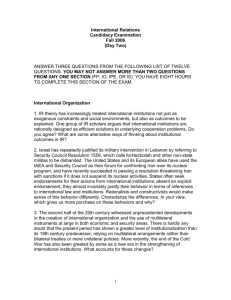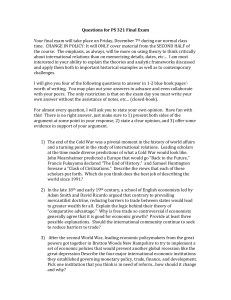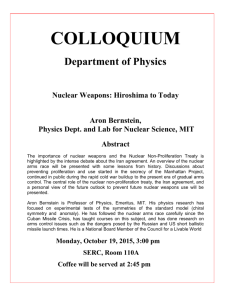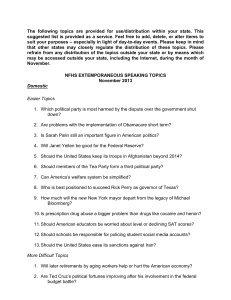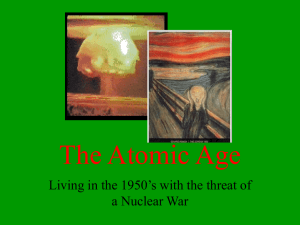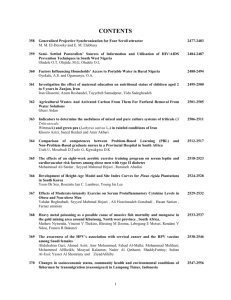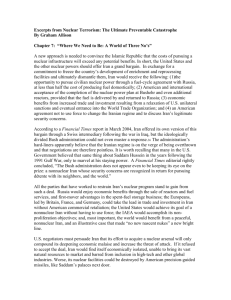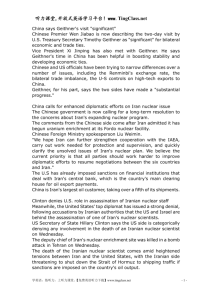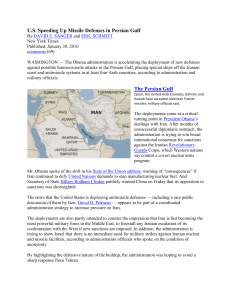U.S. Says Iran Has Material for an Atomic Bomb
advertisement
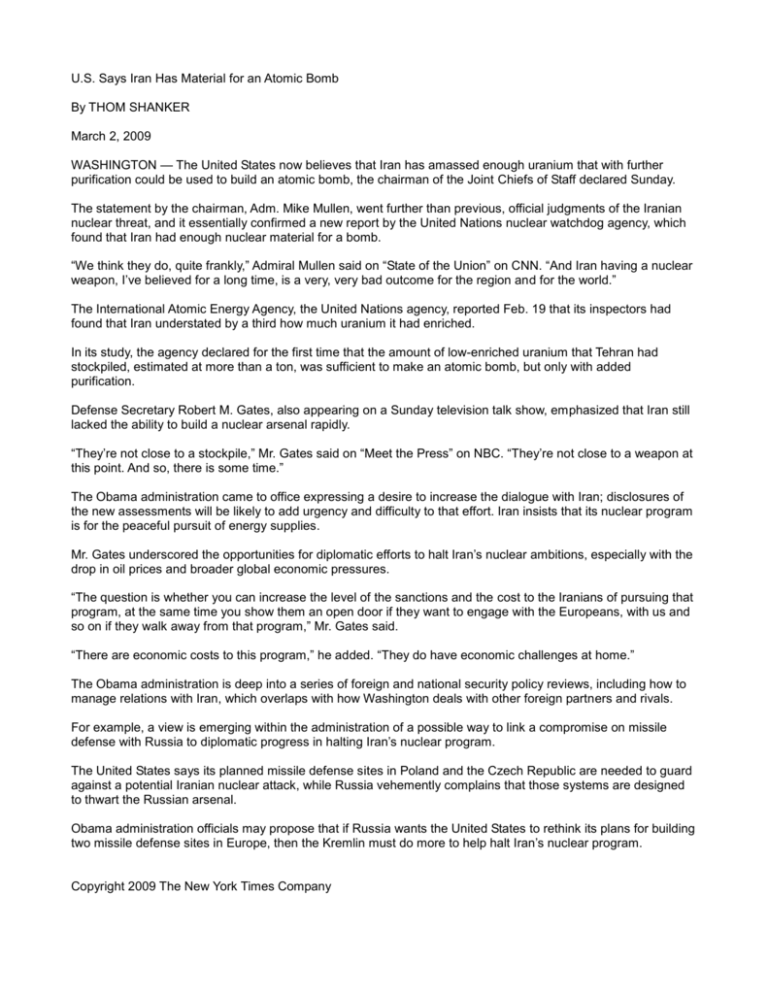
U.S. Says Iran Has Material for an Atomic Bomb By THOM SHANKER March 2, 2009 WASHINGTON — The United States now believes that Iran has amassed enough uranium that with further purification could be used to build an atomic bomb, the chairman of the Joint Chiefs of Staff declared Sunday. The statement by the chairman, Adm. Mike Mullen, went further than previous, official judgments of the Iranian nuclear threat, and it essentially confirmed a new report by the United Nations nuclear watchdog agency, which found that Iran had enough nuclear material for a bomb. “We think they do, quite frankly,” Admiral Mullen said on “State of the Union” on CNN. “And Iran having a nuclear weapon, I’ve believed for a long time, is a very, very bad outcome for the region and for the world.” The International Atomic Energy Agency, the United Nations agency, reported Feb. 19 that its inspectors had found that Iran understated by a third how much uranium it had enriched. In its study, the agency declared for the first time that the amount of low-enriched uranium that Tehran had stockpiled, estimated at more than a ton, was sufficient to make an atomic bomb, but only with added purification. Defense Secretary Robert M. Gates, also appearing on a Sunday television talk show, emphasized that Iran still lacked the ability to build a nuclear arsenal rapidly. “They’re not close to a stockpile,” Mr. Gates said on “Meet the Press” on NBC. “They’re not close to a weapon at this point. And so, there is some time.” The Obama administration came to office expressing a desire to increase the dialogue with Iran; disclosures of the new assessments will be likely to add urgency and difficulty to that effort. Iran insists that its nuclear program is for the peaceful pursuit of energy supplies. Mr. Gates underscored the opportunities for diplomatic efforts to halt Iran’s nuclear ambitions, especially with the drop in oil prices and broader global economic pressures. “The question is whether you can increase the level of the sanctions and the cost to the Iranians of pursuing that program, at the same time you show them an open door if they want to engage with the Europeans, with us and so on if they walk away from that program,” Mr. Gates said. “There are economic costs to this program,” he added. “They do have economic challenges at home.” The Obama administration is deep into a series of foreign and national security policy reviews, including how to manage relations with Iran, which overlaps with how Washington deals with other foreign partners and rivals. For example, a view is emerging within the administration of a possible way to link a compromise on missile defense with Russia to diplomatic progress in halting Iran’s nuclear program. The United States says its planned missile defense sites in Poland and the Czech Republic are needed to guard against a potential Iranian nuclear attack, while Russia vehemently complains that those systems are designed to thwart the Russian arsenal. Obama administration officials may propose that if Russia wants the United States to rethink its plans for building two missile defense sites in Europe, then the Kremlin must do more to help halt Iran’s nuclear program. Copyright 2009 The New York Times Company
